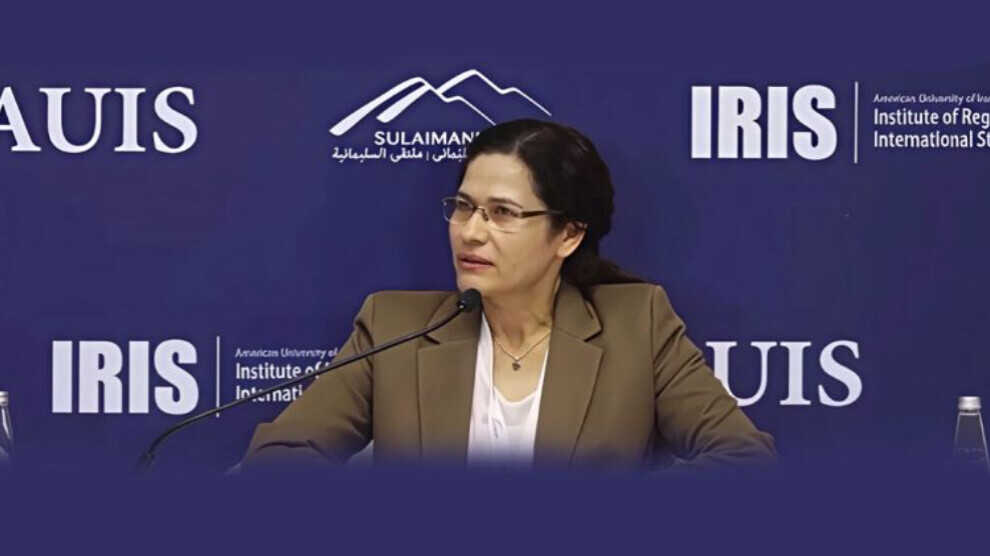Ilham Ehmed: We are seeking a stronger agreement for Syria
“We are seeking a stronger agreement for Syria's constitutional process, political system and reconstruction,” said Ilham Ehmed at the 9th Sulaymaniyah Forum.
“We are seeking a stronger agreement for Syria's constitutional process, political system and reconstruction,” said Ilham Ehmed at the 9th Sulaymaniyah Forum.

Ilham Ehmed, Co-Chair of the Foreign Relations Department of the Autonomous Administration of North and East Syria, spoke about the situation in Rojava and Syria at the 9th Sulaymaniyah Forum in southern Kurdistan (northern Iraq).
Pointing out that it will be difficult to return to the pre-2011 situation in Syria, Ehmed emphasized that diversity must be respected.
“The rights of Kurds and all other components must be guaranteed in the constitution,” she said.
Stating that the majority of the Syrian people do not want a centralized system, Ehmed said, “Syria needs new solutions to avoid the current crises.”
Underlining that the participation of all parties in the drafting of the new constitution will be important, Ilham Ehmed said, “The Syrian people have decided to fight for their freedom and dignity and will not give up their goals from now on.”
Referring to the agreement between the Autonomous Administration and the Damascus government, Ilham Ehmed said, “We are seeking a stronger agreement for Syria's constitutional process, political system and reconstruction.”
Regarding the agreement signed between SDF General Commander Mazloum Abdi and Syria's interim President Ahmed al-Sharaa, Ilham Ehmed added: “This agreement is important for the fate of the Kurdish people and other components of Syria. The agreement refutes the allegations that the Autonomous Administration is trying to secede from Syria.”
Ilham Ehmed also pointed to the obstacles facing the Autonomous Administration, saying, “These obstacles do not mean that we will take steps back. On the contrary, they strengthen our will to achieve our goals. We hope to build a better and we will continue our struggle until we reach our goals.”
“The experience of the Kurdistan Region is important in the history of Kurds and the countries they live in,” Ilham Ehmed concluded: “The situation in the Kurdistan Region and the geopolitical situation in Syria are generally different. This difference must be taken into account.”